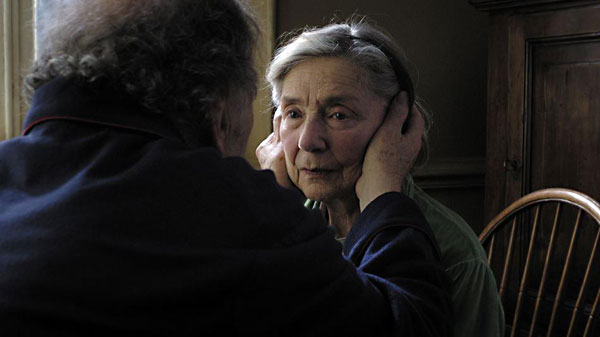Amour Killing?

After winning the Palme d’Or at the Cannes Film Festival in May 2012, Michael Haneke’s Amour has received rave reviews from most reviewers, and more recently, an Oscar for Best Foreign Film. At first viewing, Amour seems like it could be a departure from Haneke’s other films, which ask the viewer to tolerate wanton violence or at least the ever-foreboding threat of violence. But one needs to simply expand the sense of “threat” to find that Haneke’s vision of “human-as-victim” is alive and well in Amour. One should not be misled, as many reviewers seem to be, with “love” in the title. Amour is at its core a film about one couple’s descent into a self-isolating cavern of caregiving, and a shocking conclusion to that descent.
From a technical standpoint, the film is masterfully done. The acting is superb. The scenes are allowed to play out in long takes within steady and beautifully composed camera frames. There is no external music track to help “guide” the viewer’s emotional response to the story. There is no complicated or tricky story line to appeal to our attention-deficit culture—but my attention was held irrevocably throughout the entire film. Certainly, not everyone will be attuned to watching how one Parisian couple handles the progressively disintegrating effects of a series of strokes, but for anyone interested in this as a potential component of the final transition out of this life, the film provides a powerful and unblinking view.
